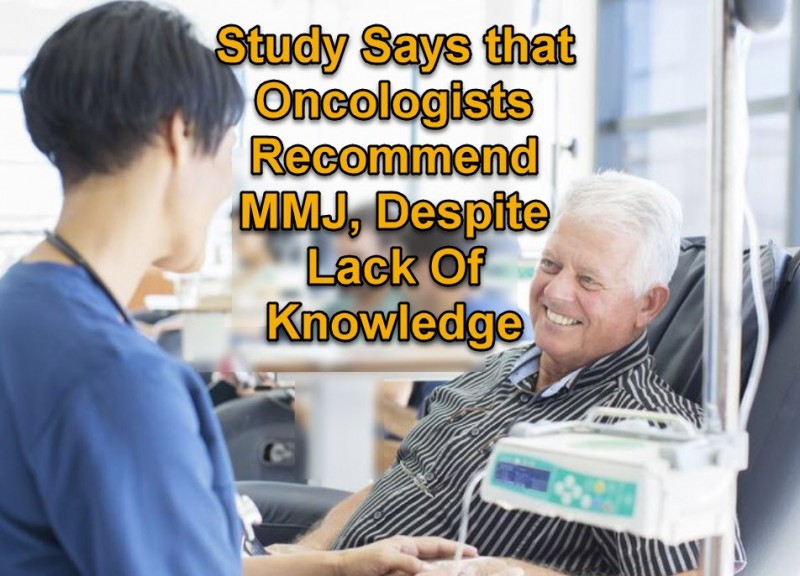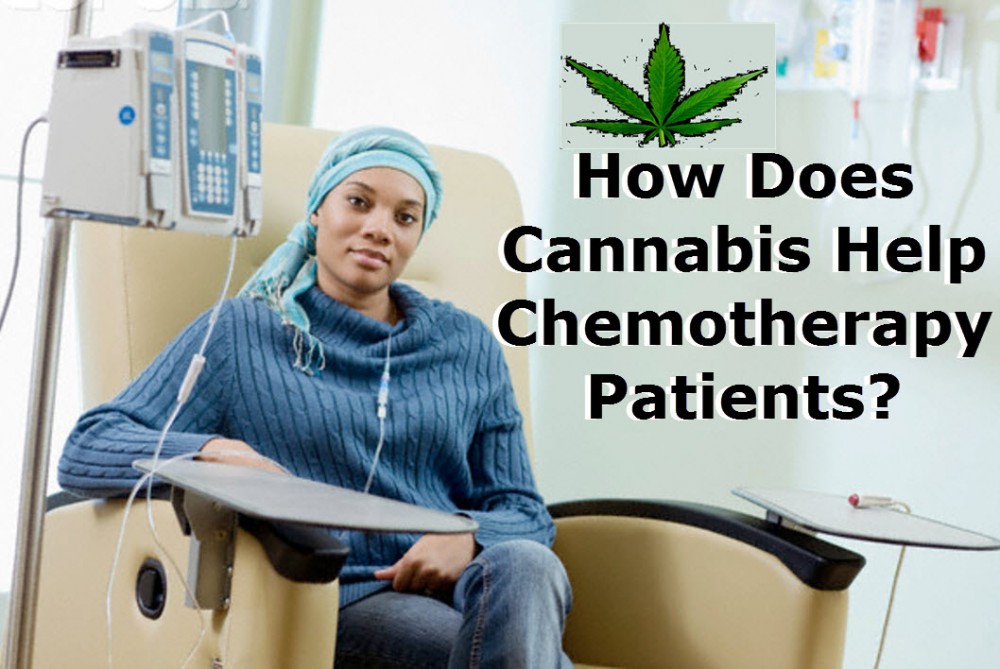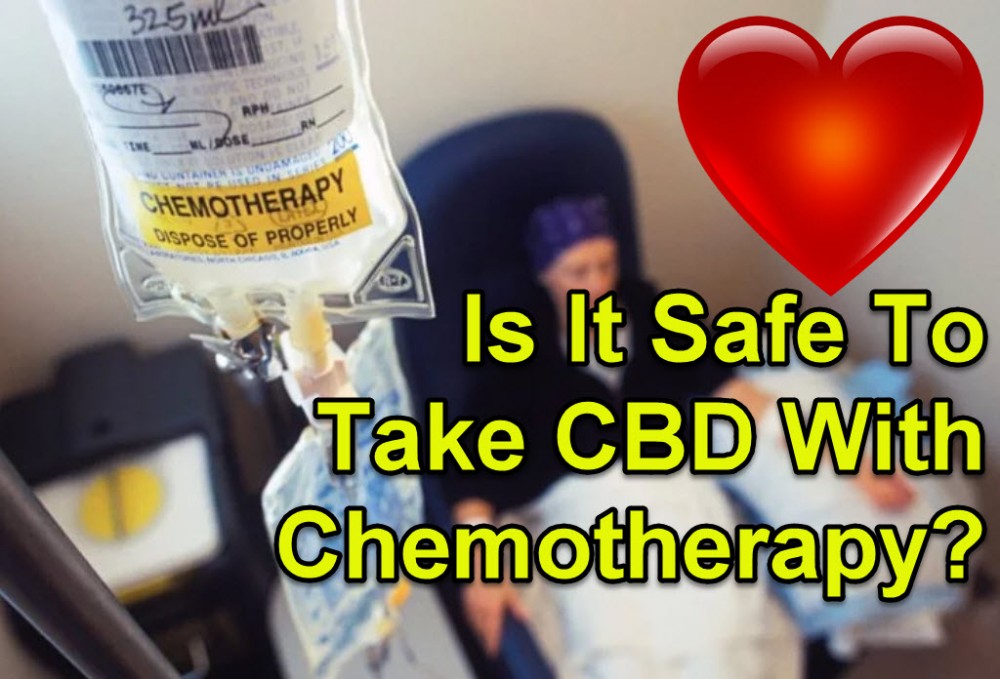Study Says that Oncologists Recommend MMJ, Despite Lack Of Knowledge
Oncologist Recommend Medical Marijuana to Cancer Patients Despite No Formal Training from CannabisNet on Vimeo.
Medical cannabis laws are already in place in thirty US states, and all of them, except one, include cancer among the list of qualifying conditions.
Through these laws, cancer patients throughout the country can access cannabis, a life-saving medicine that is still considered illegal at the federal level. While there are hundreds of medical studies that prove the efficacy of the cannabis plant in treating cancer, as well as anecdotal reports, doctors across the United States still lack the training necessary to provide patients with an informed medical decision.
A new survey conducted asked 237 oncologists throughout the country revealed that around 80% of them discuss the use of cannabis with their cancer patients, less than 30% feel confident that they have the knowledge needed to give recommendations about the plant’s medicinal benefits.
And despite this, almost half of the oncologists surveyed still do recommend cannabis use to their patients. The study, which was published in the Journal of Clinical Oncology, is the first national study analyzing the attitudes, practices, and knowledge of medical oncologists on the topic since medical use of cannabis was legalized on a state level. The oncologists were also asked about their attitudes towards the efficacy and safety of cannabis compared to conventional treatments, how they hold discussions with patients, and if they find themselves informed enough to recommend cannabis use in oncology, among others.
The findings revealed that over half of the oncologists who recommend cannabis don’t think that they are knowledgeable enough to do so.
“Unfortunately, at this time, the evidence base to support medical marijuana’s efficacy in oncology is young,” says Dr. Ilana Braun, the study’s lead author and a cancer psychiatrist at the Dana-Farber Cancer Institute in Boston, Mass. “So, often oncologists are borrowing from clinical trials for other diseases, or extrapolating from evidence on pharmaceutical-grade cannabinoids.”
For the study’s purpose, only questions about medical cannabis were asked. Medical cannabis was defined as a non-pharmaceutical product that doctors would recommend for its therapeutic value. It did not discuss the use of pharmaceutical-grade cannabinoids, such as synthetic THC and other products which have been approved by the FDA for treating the side effects of chemotherapy such as nausea and vomiting.
What’s disturbing is that there has been much more research poured into the development of cannabinoid-based pharmaceuticals, and much less on its efficacy on cancer as well as other illnesses.
“We can think of few other instances in which physicians would offer clinical advice about a topic on which they do not feel knowledgeable. We suspect that this is at least partly due to the uncomfortable spot in which oncologists find themselves. Medical marijuana is legal in over half the states, with cancer as a qualifying condition in the vast majority of laws, yet the scientific evidence base supporting use of medical marijuana in oncology remains thin.”
“Ensuring that physicians have a sufficient knowledge on which to base their medical recommendations is essential to providing high quality care,” says Eric G. Campbell, PhD; a former professor of medicine at the Massachusetts General Hospital and currently a professor at the University of Colorado School of Medicine. “Our study suggests that there is clearly room for improvement when it comes to medical marijuana.”
As of the time of writing, there are still no randomized clinical trials that have assessed the effects of whole-plant medicine on cancer patients.
For Dr. Andrew Epstein, even if doctors aren’t equipped with the knowledge on medical cannabis, it isn’t a cause for great concern. “If oncologists are recommending something which is blatantly unsafe, then that would be one thing. I think marijuana has a lack of evidence behind some things for benefit and may have some downsides, but I do not think marijuana, per se, is a highly risky therapy,” says Epstein, who works as an oncologist at the Memorial Sloan Kettering Cancer Center in New York City. “I am less concerned than the authors about this.”
Epstein does agree with Braun that more research and supplemental education on cannabis is needed so that doctors can better provide their patients with informed advice. Doing so “would help with the knowledge base of these things, so oncologists could become even more knowledgeable participants in helping guide patients and families,” Epstein adds.
Additional findings from the study also state that almost 2/3 of the oncologists believe in the use of medical cannabis as an alternative to standard pain therapies, and that it is just as or even more effective than the standard therapies available for treating the side effects of chemotherapy including appetite loss, nausea, or vomiting.
Oncologists Recommend Medical Marijuana, Despite Lack Of Knowledge New Study Finds from CannabisNet on Vimeo.
OTHER STORIES YOU MAY ENJOY...
CHEMO AND CANNABIS, HERE IS WHAT TO KNOW, CLICK HERE.







